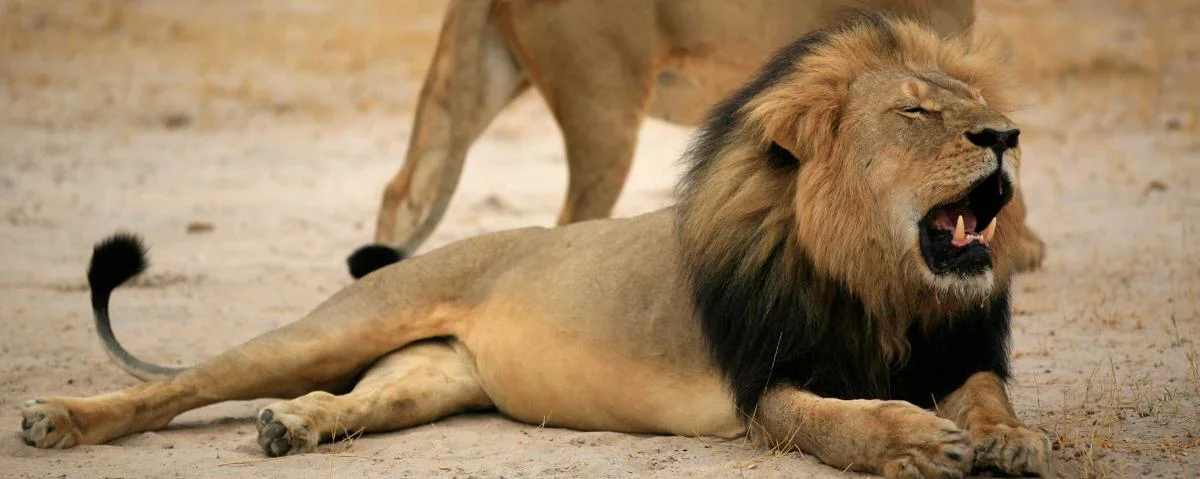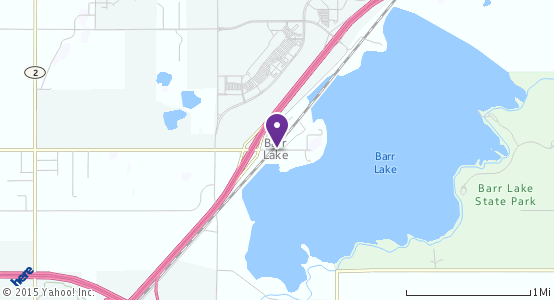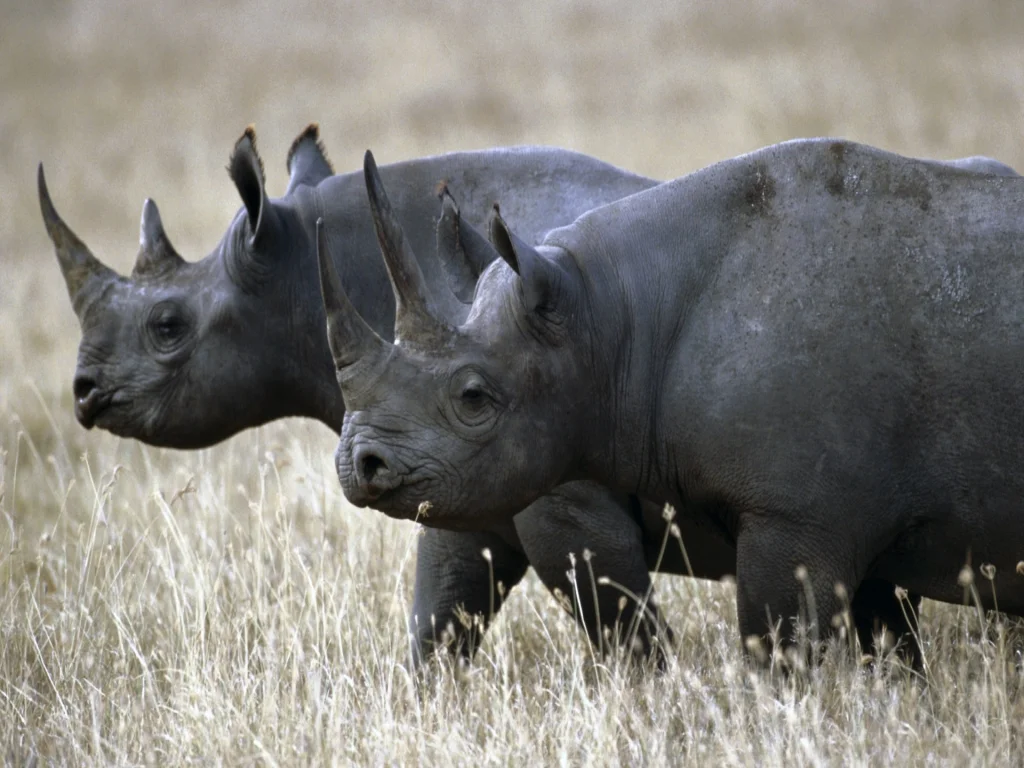Cecil - Rest In Peace. Trophy hunting, conservation and wildlife protection are full of complex sets of issues.
"The preoccupation with what should be is estimable only when the respect for what is has been exhausted." - Ortega
Cecil relaxing with his pride.
I'm like many people who felt outrage when I heard about a hunter from the USA who, with his paid guides, lured a well-loved animal from it's protected habitat so he could shoot it with a crossbow, track it, and then shoot it again to kill it - and all for sport. The "it" I'm referring to is Cecil of course.
I have to say upfront that I grew up hunting in Colorado. My father and mother loved riding to the hounds at the Arapahoe Hunt Club on the old Highlands Ranch. They would chase coyotes in traditional English equestrian dress. The community was close-knit, a lovely group of people that I was fortunate to have grown up with.
McClure Pass. Paonia State Park.
I used to go Elk hunting with my father and his friends on the Bear Ranch, a high-country ranch in Paonia on the western slope of the Rocky Mountains in Colorado. The Bear Ranch was later acquired by Bill Koch - I get dizzy and angry thinking of this particular climate change denying billionaire buying my friend's ranch. I guess, in the future, only billionaires will be able to afford these majestic ranches that will be staffed, no doubt, by a mix of legal and illegal ranch hands and managers. Of course, it's on the market again. I suppose it will be a good trade for Bill.
We also enjoyed hunting grounds on our friend's place near Barr Lake where we hunting ducks and dove. Every season we did I did this with family and friends until I was around 18 and decided it was time to move on. After high school, I haven't hunted much. In fact only twice since then. We also went game fishing in various locations around the world. I still like to go fishing once in a while and on sailing trips we've caught tuna and other grand fish.
I can't remember any feelings of elation, guilt, or even a chord of ambivalence although surely I had those feelings. I can only patch together memories that are inevitably colored by recent experience and my current attitudes and beliefs. When I was young I was simply participating in a family tradition - kind of like when I went to church.
The best memory I have of hunting was when, back in the 70s, Buddy Bear and I headed way up by the tree line of a nearby mountain, on horseback with a pack horse trailing behind us. We were hunting elk near a small lake where we planned to sit in ambush. We both had bull licenses that year so we hoped we'd get a trophy. A trophy, in this case, would be a big rack with 12 points on it. A rack is what we call the elk's horns. A bull elk is male, a cow female. After making a small camp above the lake, we went to a stream and caught trout that we ate with potatoes we cooked on an open fire. In the morning, I got my elk and it had an impressive rack. I positioned the carcass so its head was facing downhill and cut its throat so it could bleed out. Buddy and I cleaned it, skinned it, quartered it, put the quarters in gauze sacks (to protect the meat from flies), hung the gauze sacks in a tree near ear-shot of our camp for the night, and settle by the campfire where we ate more trout and potatoes. In the morning we retrieved the sacks of meat we hung up in a pine tree to keep it away from creatures and bears, put the gauze sacks, the skin, and the rack (horns) on the packhorse, and happily made our way back to the ranch. Buddy went out the next day to get his elk while I went out on a drive with my dad. "A drive" is when you go out and move through a location to push game towards hunters lying in wait. You have to plan it well and do it right for safety.
A Bull Elk with a 12 point rack.
Many people have written eloquently about hunting so I'll spare you any more anecdotes here. I can say that we ate what we killed. I was used to it and liked the meat. My first motorcycle jacket was made out of elk skin by a tailor in Denver. I have nothing against licensed, regulated, or traditional hunting. I'm an omnivore and I love to eat almost everything. I've even eaten insects in Thailand and snake in China with only a shrug and a, "not bad" to the host.
All that having been said, I can't understand why people go to far away places in the world to kill endangered species. I can't imagine myself even going out of the way to kill a Black Bear, or hike up a mountain to kill a Bighorn sheep. I don't much care for trophy hunting. I just don't get the thrill. After all the killing humans have done throughout our history I can only imagine one creature that truly might deserve killing. I'm not going to say it. I can only say that my first sentiment at hearing about our Dentist's hunt was a vengeful one.
I also hate media speculation. Stop talking about it until the facts are in please. Give us the news and shut up. Then you can analyse the hell out of the story when you have the facts. PLEASE!
Bighorn Sheep in New Mexico. Amazing animals. It made me want to be a wildlife filmmaker when I saw them.
My next thoughts were of my typical "follow the money" variety that I just can't stop pondering these days. There is a business surrounding everything we do after all, from the acquisition of specialized tools to learning how to use the tools, to equipment and other capital assets needed to carry out our plans, to transportation, lodging, guides, consultants, bureaucrats and their offices (government is a kind of business) and on and on... There is a food chain, so to speak, of money throughout everything we do. In other words, there's a significant amount of money that can be made from the activity of hunting. There are revenues that countries and parks can receive through licensing fees and for other things hunters need to pay for to be able to do their thing. Tourism is big money for some countries where hunting is on offer and happens to be a big draw.
The first time I went to Africa I was 12 years old. We went on "photo" safari in Kenya, Tanzania, Uganda and Congo. We also visited Ethiopia where I had something really spicy while eating with my fingers. I could go on and on about Africa. I'll never forget when our guide shouted under his breath, "look, boy, a lion in a tree!" He pointed up and I was thrilled. Simba katika mti! I don't have any idea how much our family spent, but we didn't kill anything. We took some good photos for sure.
Simba katika mti.
After cascading through my usual follow-the-money thoughts it occurred to me that I had heard and read since childhood about how humans were an integral part of the balance of nature and that through our natural activities we helped maintain populations of precious animals so that they, and we, could follow our natural character and coexist in a stasis of health and mutual respect. Yes, for sure, in an ideal world.
Visit Ducks Unlimited, The Sierra Club, National Geographic, and dozens of other NGOs, nonprofit organizations, government resources etc. There are lots of MOOKS, university programs and so on, where you'll find a lot of well-meaning, decent and smart people who are looking into these issues very carefully. Good information is there if we look for it. Never forget to find and follow primary sources. (I have to remind myself of that all the time.)
As I reminisced about all of this and thought about various aspects of the many complex issues pertaining to Cecil's story, a disturbing question came to mind: isn't it ironic that one of the major ways to finance conservation is through the business of killing the animals we want to protect? Well, that's not the only way we finance conservation, but it's still ironic that one of the ways we finance saving the black Rhino is through hunting the black Rhino. Apparently in 2014 Americans spent eleven million dollars trophy hunting in Namibia. That's a significant amount of money for Namibia and it doesn't include revenues from other kinds of hunting.
I keep thinking that if we valued our natural resources, as well as life on earth, in a different way we wouldn't be facing the sixth extinction. Some would argue that we're also rapidly approaching the end of the Anthropocene and of Homo-Colossus. "The end is near!" It doesn't have to be so.
"The permit was sold for $350,000, well above the previous high bid for a permit in that country, $223,000. While the Dallas Safari Club had the dubious distinction of being the first organization to hold such an auction outside of Namibia itself, it’s fairly unremarkable and actually quite common for an African nation to sell permits for trophy hunting, even for endangered species."
Look at how much money it costs for a license to hunt certain animals in certain places. It's no wonder that you have to be the son of a billionaire to go on such hunts. Give the boy a silver gun and let him have fun. The Trump boys certainly can afford a nice hunting safari in Africa. If Donald gets elected we can well imagine his visits to Africa being quite a bit different from President Obama's mission. Republicans will be proud to have them no doubt. Shot of our president's kids with their prey (perhaps on a war safari) followed by a story of how Donald's bombing the hell out of the middle east and building walls to keep the Mexicans out. You can see by the photo below that the Trump family really does know how to get things done. But I digress.
(Atlus and Steven shrugged, but in different ways.)
The Trump boys having a nice hunt while financing conservation.
The issues here are complex and highly politicized. There are several questions that science can't help address, primary of which is whether or not the money raised from the sale of hunting permits is used for conservation, something often promised by hunting tour operators. But empirical research can help to elucidate several other questions, such as whether hunting can ever help drive conservation efforts.
But if an endangered species as charismatic as the black rhinoceros is under such extreme threat from poaching, then perhaps the message that the species needs saving has a larger problem to address than the relatively limited loss of animals to wealthy hunters. The real tragedy here is that the one rhino that will be killed as a result of Saturday’s auction has received a disproportionate amount of media attention compared to the hundreds of rhinos lost to poaching each year, which remain largely invisible. And while there remains at least a possibility that sanctioned trophy hunts can benefit the black rhino as they have for the white rhino, there is only one possible consequence of continued poaching. It’s one that conservationists and hunters alike will lament. – Jason G. Goldman | 15 January 2014
I'll let you follow some links, do your own research and decide for yourself what complex forces are at play here and what we should do to improve, mitigate or heal things. As always my message is that we can do better and that we have to do better.
It's good that our Dentist "friend" is apologetic and ashamed. I'm not going to shed a tear if his customers shun him. It's fine by me if he feels he has to scurry off into hiding, but it's also true that he may have thought he was on a legal hunt and doing everything by the book; and, he may have reasoned that he was on a righteous hunt and that the revenue made by his hunt would go to the conservation of Lions. I don't know now. We'll have to wait and see. What's his track record as a hunter?
Again I'm back to my main concern: is trophy hunting the best way to finance conservation of these noble species? We can look these creatures in the face and find them beautiful, even elegant, graceful, and we can feel as if we can almost communicate with them, we can call them God's creatures so why do we need to kill them in the first place. For the thrill? Because it's in our nature? As an ego boost and war story to tell our friends? To affect nature's balance?
And what of the flora that disappears all the time that we've never even notices.
When I hunted with family and friends it was a simple, natural, communal process without much fanfare. We enjoyed it. It seemed a healthy thing to do and the food was good. None of us could even have contemplated the extinction of the Elk, or the Canadian Goose, or the Marlin, or the Tuna, but today it's clear that we could lose these creatures and if we did, humanity be damned, it would be a tragedy of, dare I say it, biblical proportions!
While I was reading and mildly researching to brace myself for writing this I was, yet again, amazed at the fine workings of finance in all of this. I guess we can't do the right thing unless we first figure out how we're going to pay for it.
Now that I know Cecil is gone I'll miss him. We've renamed our cat Cecil in honor of that beautiful Lion King.
CECIL, OUR CAT. FORMERLY KNOW AS CASPER, AND GATSBY. FULL NAME: CECIL GATSBY WAHWAH.
Cecil Gatsby WahWha power lounging in the man cave.
I won't go into any detail about financing conservation and the protection of wildlife. I hope you will have a look at the following resources. If you really care about these animals educate yourself about this stuff.
Live in peace.
REFERENCES:
CONSERVATION FINANCE: Credit Suisse / WWF / McKinsey&Company
Review Economic and conservation significance of the trophy hunting industry in sub-Saharan Africa
Hunting in America
** $300 million — Additional monies contributed to wildlife conservation every year by the more than 10,000 private hunting-advocate organizations, like the National Wild Turkey Federation, Ducks Unlimited, and the Rocky Mountain Elk Foundation
** $4.2 billion — Amount of money sportsmen have contributed to conservation through a 10% federal excise taxes on firearms, ammunition, and gear since the 1937 Pittman-Robertson Act established the tax. Millions of acres of public-use land has been purchased, preserved, and maintained with this money.
https://www.awf.org/
https://www.worldwildlife.org/initiatives/conservation-finance
https://www.worldwildlife.org/about/financials
http://www.wcs.org/conservation-challenges/local-livelihoods.aspx
http://northernwoodlands.org/articles/article/state-wildlife-conservation
https://www.facebook.com/volunteersbeware/posts/799395270107971
http://blog.gaiam.com/as-hunter-numbers-decline-how-will-we-fund-wildlife-conservation/











